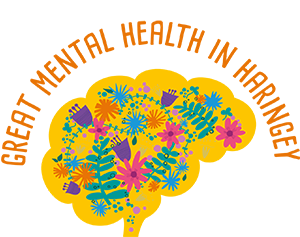The difference between mental health, poor mental health and mental ill health
Positive mental wellbeing is much more than the absence of a mental health condition. It’s about coping with the stresses of daily life, having a sense of purpose, and feeling a connection with others.
Mental health
We all have mental health, just as we all have physical health. We can have good mental health, experience poor mental health or a mental ill health just as we can have good physical health, poor physical health or a physical medical condition.
Poor mental health
Poor mental health is a state that has a negative impact on the way we think, feel and behave. Poor mental health can cause distress or inability in social, work or family settings and impact daily living, including how we interact with those around us.
For example, similar to a back injury caused from heavy lifting, you might experience a period of depression due to increased stress or life pressures. Like poor physical health, the severity of symptoms ad longevity varies from person to person.
Mental ill health
The difference between poor mental health and mental ill health is the degree and length of time the difficulties experienced impact a person's wellbeing and functioning.
Mental ill health is when poor mental health has impacted a person to the point where it could be a diagnosable mental health condition. However, it doesn't always mean there is a diagnosis sought.
Mental ill health has a more significant detrimental impact on a person's life than periods of poor mental health, which may be situation specific or time limited.
Just like living with a long-term medical condition such as diabetes, there is support and treatment available for mental ill health and mental health conditions.
Try the NHS quick Mind Plan quiz to get personalised tips, advice and support to help boost your mental wellbeing.
5 ways to improve mental wellbeing
Connect
Connect with the people around you, with family, friends, colleagues and neighbours. To find things to do and places to meet people, search for community and social groups in our adult social care directory.
The Great London Friendship Project runs regular events, activities and community initiatives to help young adults in their 20s and 30s connect, build life-long friendships and make memories
Be active
Participation in regular physical exercise can increase self-esteem and reduce stress, low mood and help you sleep better. Step outside, go for a walk or run, cycle, play a game, garden, dance - exercising makes you feel good. Make use of our green spaces, parkruns or search for outdoor activities in our adult social care directory.
The Tottenham Hotspur Foundation hosts ‘turn up and play’ 5-a-side, fitness classes and walking football – all welcome.
Football not your thing? Find your activity from a range of sport and fitness events across Haringey.
Take notice
Be curious, catch sight of the beautiful and unusual. For a range of local events, see our Haringey events listings.
Keep learning
Try something new, rediscover an old interest, sign up for courses, or take on a different responsibility at work. Learning new things will make you more confident as well as being fun. Find free courses through Haringey Learns. You can also search for learning opportunities in our adult social care directory.
Give
Do something nice for a friend, or a stranger. Volunteer your time, join a community group. Seeing yourself, and your happiness, linked to the wider community can be incredibly rewarding and creates connections with the people around you.
- Find out about volunteering on the Do it website
- Join Good Gym to do physical tasks for your local community groups
- Search for volunteering opportunities in our adult social care directory
Getting a good night’s sleep
Finding it hard to get to sleep or waking in the night? Check out Good Thinking's broad range of resources, including their comprehensive Sleep Workbook.
Physical health is linked to mental health
Become a healthier you with One You Haringey. Qualified coaches help you move more, lose weight, be smoke-free and drink less.
Talking about mental health is important, but it isn’t always easy.
Sometimes conversations about mental wellbeing can touch on sensitive and emotional topics, and it can be difficult to know the best way to approach the conversation.
This conversation starter tool can help you feel more confident in conversations about mental health with friends, family, and acquaintances about mental health and wellbeing. As well as importantly outlining the most appropriate help and advice services to signpost to for professional support.
Following a SIGNSS framework – Situation, Initiate, Guide, Nudge, and Support and Signpost – this conversation starter tool will help encourage a gentle and supportive conversation.
Download the conversation starter resource.
